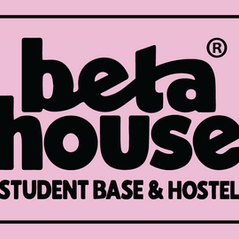Our opinion in apaleo's article on -Guiding hoteliers through AI adoption: Empowering hotel staff through education and culture
- Sofia Strahl
- Sep 24, 2024
- 3 min read
Updated: Dec 18, 2024
In a recent collaboration with apaleo and ailean.io, we organised our first webinar about operational AI. Along with that, apaleo asked about our opinion on the most effective methods for increasing AI literacy among hotel staff.
Enjoy:
True transformation starts with people. Ensuring your workforce is not only aware of AI but also prepared and excited to work with it is essential to a successful implementation.
In collaboration with Fraunhofer IAO and the FutureHotel Innovation Network, we're launching a series of articles to provide hoteliers with a practical guide for AI implementation. We'll break down the process into four key stages, with insights from industry experts at each step. Following our first article on vision setting - where we explored the importance of establishing a clear AI roadmap - this second article delves into a crucial next step: building a culture of education and AI literacy among hotel staff.
That’s why this next stage in AI adoption is all about education and culture - building a workforce that is both AI-literate and motivated to innovate.
Education & culture
Hoteliers must prioritise education by providing teams with the tools and knowledge they need to understand how these technologies can be integrated into everyday operations. This can be achieved through a variety of initiatives, including interactive workshops, seminars, and hands-on training sessions. These learning experiences break down AI concepts and demonstrate their practical applications, such as streamlining front desk tasks or personalising guest services.
Yet, formal training is just one piece of the puzzle. To foster a deeper understanding, hotel groups are increasingly offering continuous learning resources, including online courses, articles, and real-world case studies. This self-directed approach gives employees the freedom to explore AI at their own pace, building confidence and competence over time.
When hotel staff are encouraged to experiment with AI solutions, share their experiences across departments, and work together to identify new opportunities, it amplifies the potential for success. Collaboration becomes the key to unlocking AI’s full range of benefits, from operational improvements to guest satisfaction.
In this context, we invited industry experts to give us their esteemed viewpoint on:
What are the most effective methods for increasing AI literacy among hotel staff?
AI often creates fears among front-line staff, who worry their jobs may be at risk. That’s why clear communication about AI implementation is crucial.
We involve our staff in testing any new tools, allowing them to firsthand experience both the advantages and shortcomings. This builds confidence and understanding in working with AI.
We also hold weekly training sessions led by our Quality & Training Manager. In a recent session, we asked the team: What is AI good at? What is AI not good at?
The answers showed AI’s strength in providing faster, more consistent responses to routine questions (Wi-Fi, access codes, etc.). It also made the team realise their key role in handling complex issues requiring multiple systems (OTA, PMS) and delivering empathetic guest interactions.
The session concluded that AI increases efficiency, freeing up time for staff to focus on what they do best. They see themselves as the differentiating factor and want to be upskilled or cross-skilled to leverage this shift, solving complex problems and keeping the guest at the centre.
By involving staff in testing, fostering open discussions, and offering continuous training, we effectively increase AI literacy. This empowers them, making them feel appreciated by both the company and guests, and they become ambassadors for our AI-driven approach.
Source: apaleo















Comments